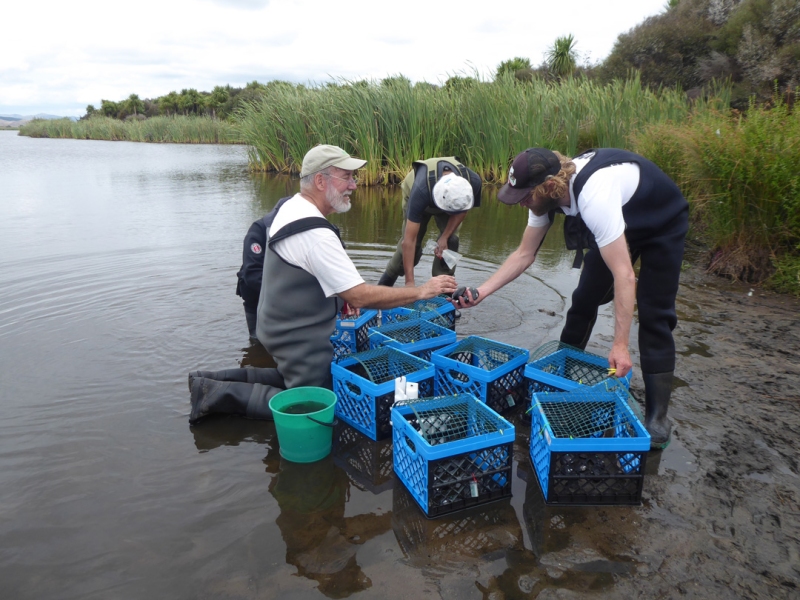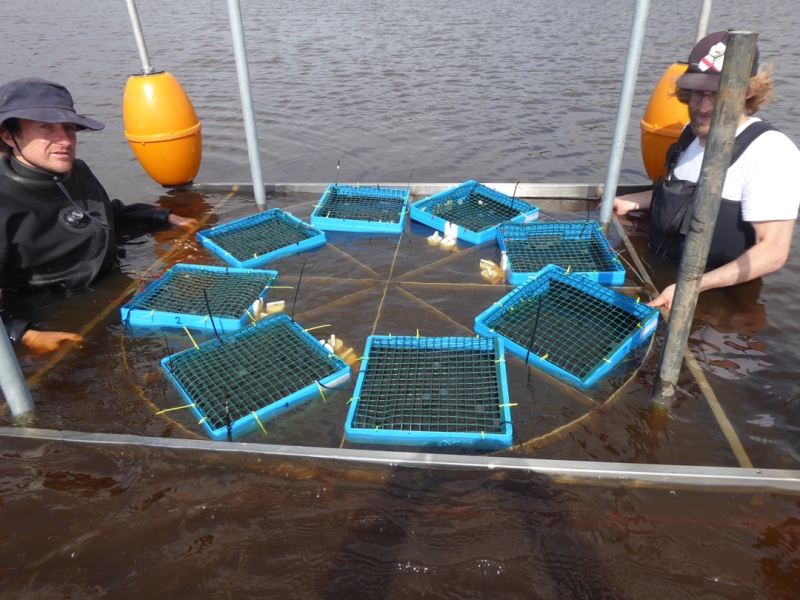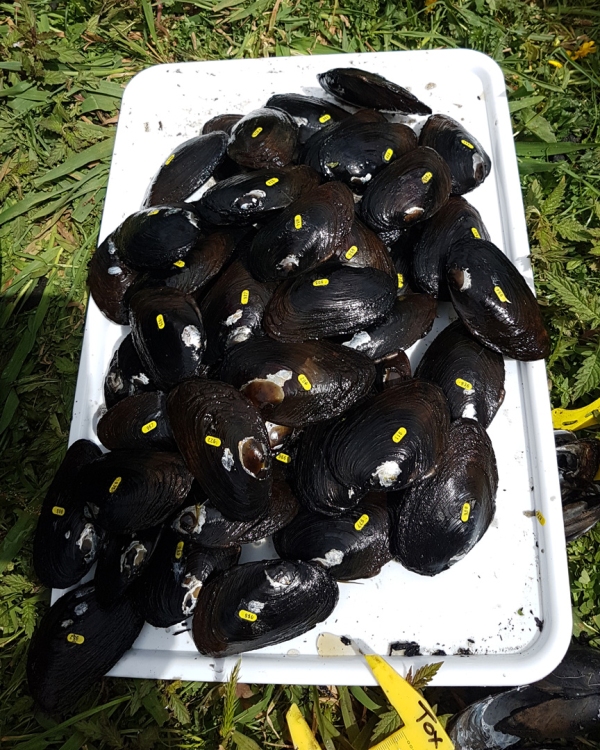A project to explore whether kākahi (native freshwater mussels) can be used to help clean up New Zealand lakes has taken a step forward, with the launch of bioremediation rafts in Lake Ohinewai in the Waikato.
The rafts are being used in a pilot study to test the survival and performance of the kākahi (also known as kāeo and torewai) in this degraded lake.
Kākahi filter water as they feed on algae, zooplankton, micro-organisms and sediment particles covered in bacteria - essentially ‘cleaning’ the water around them. NIWA scientists are investigating whether kākahi could improve water quality conditions in degraded, shallow lakes.
The rafts hold cages of individually labelled, premeasured mussels together with environmental logging instruments. The data from the monitoring equipment should tell scientists how effective the kākahi are at cleaning the water around them by measuring the rates at which kākahi filter water, remove water-borne nutrients and bio-deposits.
The results of the pilot will be used to create models that will simulate the role of kākahi rafts in shallow lake restoration scenarios, including how many animals are needed to be effective. The models will help restoration groups and agencies decide whether and how to deploy mussel bioremediation rafts in lakes.
The lead NIWA scientist on the MBIE-funded Smart Idea project, Deborah Hofstra, says that additional strands of the project are focusing on rearing kākahi and determining their environmental tolerances in the lab.
“What we are seeing in freshwater bodies is that kākahi populations are dominated by older animals, with few or no juveniles present. This is a significant concern for the future of these populations and for the health of our waterways.”
The project recently hit a milestone, where baby mussels grown in petri dishes in the lab by NIWA ecotoxicologist Karen Thompson and her team have survived past two months and continue to grow. In previous trials, laboratory-reared kākahi died by eight weeks. The recent success has been attributed to a change in diet for the juveniles, but there is still more work to be done in this area, which is scheduled for next summer.
Back to Freshwater Update 83, April 2020




